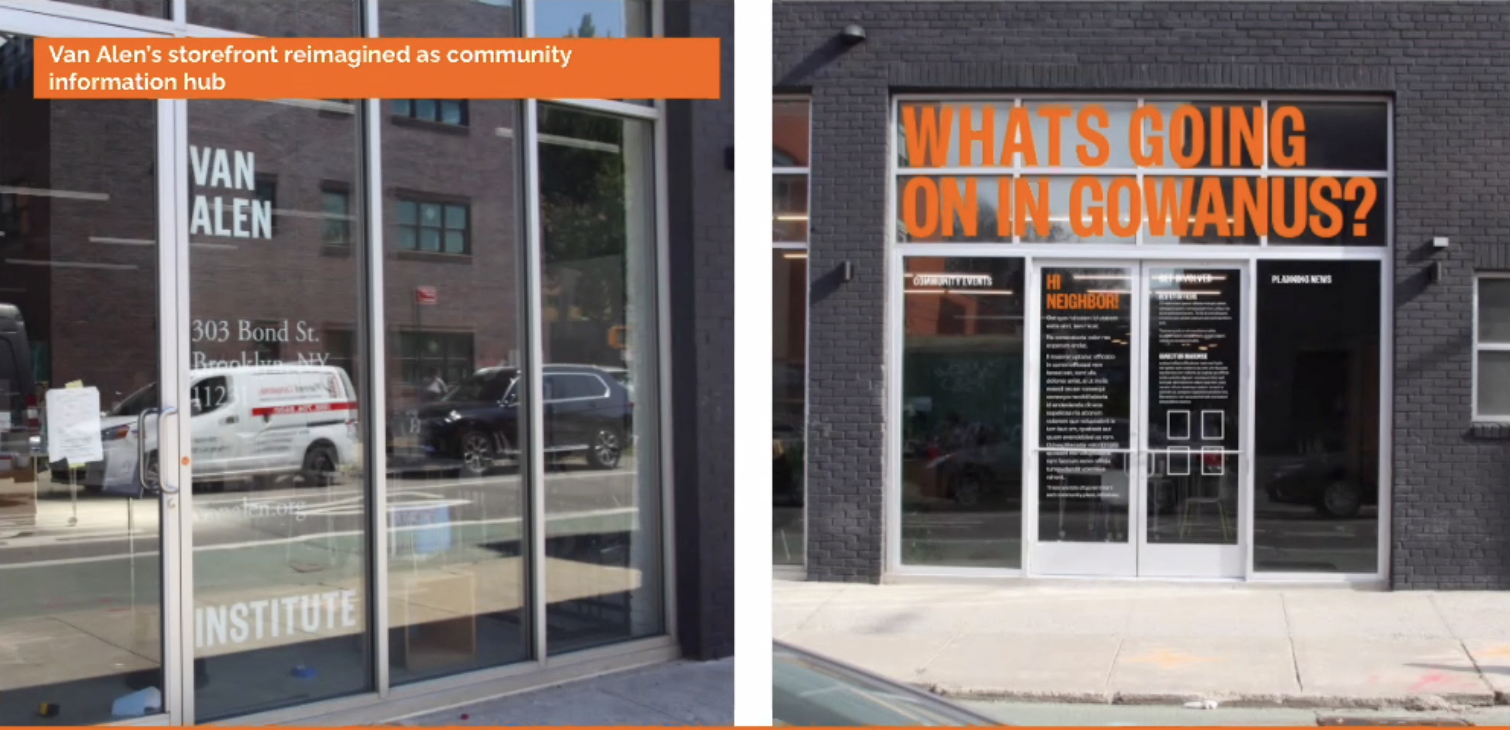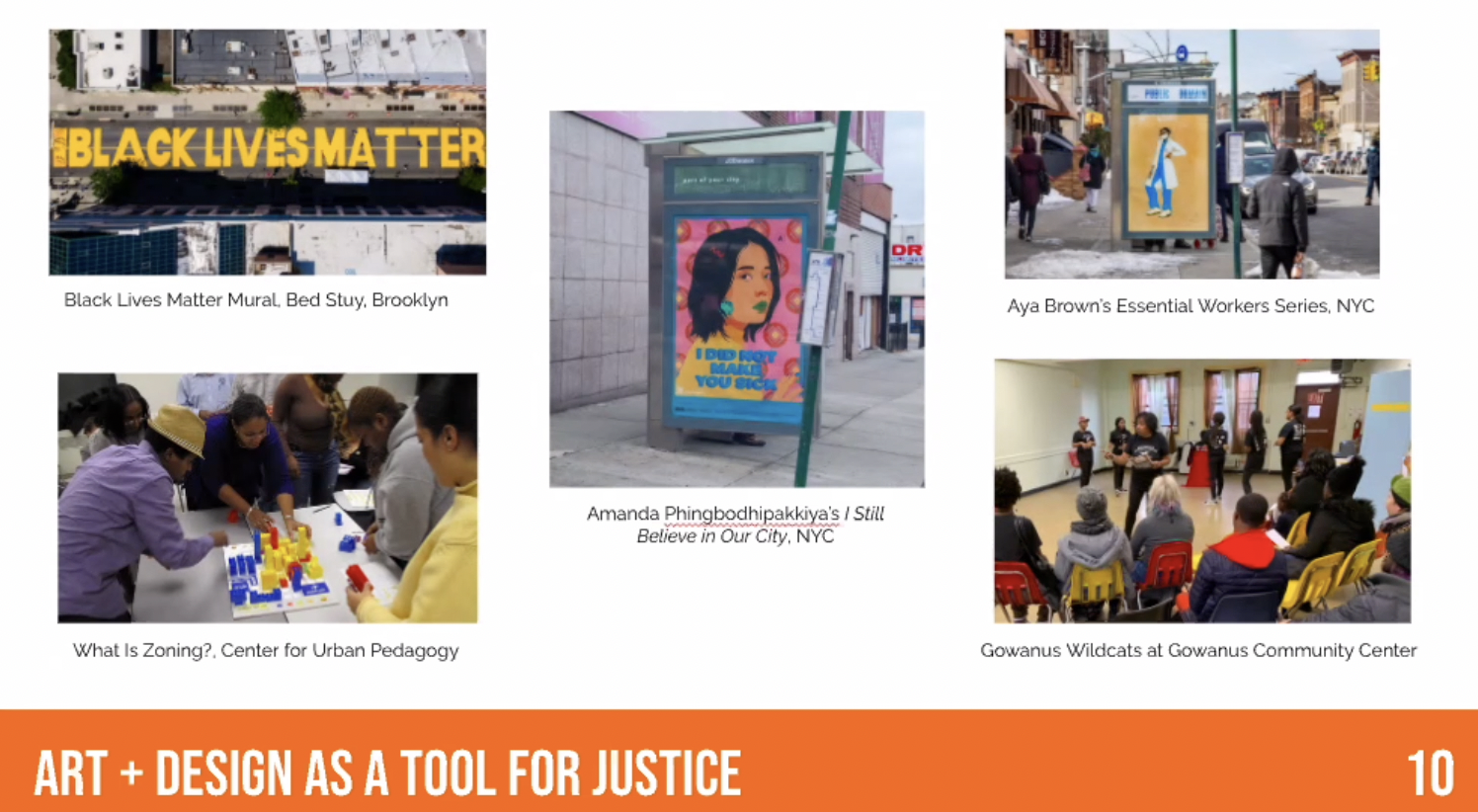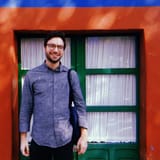Design Nonprofit Launches Fellowship to Envision the Future of Gowanus


A longstanding nonprofit with a track record of reimagining city spaces is launching a new fellowship program for Gowanus residents who want to think creatively about the future of their neighborhood.
The Van Alen Institute, which moved to a storefront office in Gowanus last year after decades in Manhattan’s Flatiron District, has created the “Neighborhood Design Lab: Gowanus” for 12 neighborhood residents to consider ways public space can strengthen the neighborhood. The program was created in consultation with the Dark Matter University, a collective that focuses on anti-racist design education.
“It really resulted from us moving into the neighborhood,” Deborah Marton, Van Alen’s executive director, said at a Brooklyn Community Board 6 meeting last night. “You really don’t know a neighborhood if you don’t talk to people on the ground, if you don’t live there, if you’re not walking the streets.”
Participants in the six-month-long fellowship program will conduct neighborhood research, organize community engagement programs, and help draft a scope of services for the redesign of Van Alen’s own offices at 303 Bond Street, including creating a large-scale graphic display for the organization’s storefront window.
At the community board meeting, Andrew Brown, the organization’s director of programs, acknowledged that the neighborhood “is experiencing a bit of planning fatigue” related to years-long debates over the Gowanus rezoning and other development projects in the area.
But he also said that conversations with local stakeholders had shown him that “questions about equity, inclusion and justice have never been more pertinent.” He cited previous public activations, like Amanda Phingbodhipakkiya’s I Still Believe in Our City illustrations and The Center for Urban Pedagogy’s “What is Zoning?” workshop as examples of art and design “as a tool for justice.”

Fellows will commit three to four hours a week to the program, which runs from May to October. They’ll start by surveying community stakeholders to identify local inclusion and equity challenges; create a list of design ideas to address those issues; and showcase the ideas at Van Alen’s offices. Throughout, Van Alen and Dark Matter will provide education, training and guidance.
After that, the group will host a block party for friends, neighbors and local officials to share ideas with a broader group.
Participants will be paid $300 per month. While the organization seeks Gowanus residents who are proactively engaged with their community, prior art and design experience is not required. The application, which must be submitted by April 26th, requires applicants to create a three-minute video in which they introduce themselves and discuss the neighborhood’s challenges and opportunities.
Attendees at the community board meeting reacted positively to the fellowship presentation; one suggested that Van Alen ensure the cohort included young people that hadn’t previously participated in community organizing events.
While Brown said Van Alen would seek to include underrepresented voices, he also said he wanted to respect “the great tradition of participatory art projects that have played out in Gowanus.”
“I think there’s a lot of wisdom out there in the neighborhood,” he said, noting that “anyone who’s a little bit older that saw this as an opportunity” would be welcome to apply.
The Gowanus fellowship is far from the 125-year-old Institute’s first foray into participatory design in Brooklyn. Last year, they organized a design competition Reimagining Brooklyn Bridge that invited both professional designers and young people to submit proposals to redesign the iconic structure.
More recently, they partnered with artist Ekene Ijeoma and the Downtown Brooklyn Partnership to create Breathing Pavilion, a public space installation that allows passersby to breathe in time with changing lights “for a moment of communal meditation.”
Meanwhile, other, more combative discussions about the future of Gowanus are still underway.
Earlier this month, Mayor Bill de Blasio issued an executive order suspending in-person meeting requirements during the city’s public land use review process; that order threw a wrench in a lawsuit filed by Voice of Gowanus, the community group which has sought to delay the neighborhood rezoning by arguing that virtual community meetings held during the pandemic violate city rules.
There was also a brief behind-the-scenes rift between the federal Environmental Protection Agency and the state’s Department of Environmental Conservation recently, after an EPA official publicly expressed concern about toxic soil at the site of a planned affordable housing development. The two agencies later released a joint statement in which they committed to”work cooperatively with all parties involved to ensure that the remediation will be protective of public health and the environment, and that the basis for the remedy is clearly communicated to the public.”





